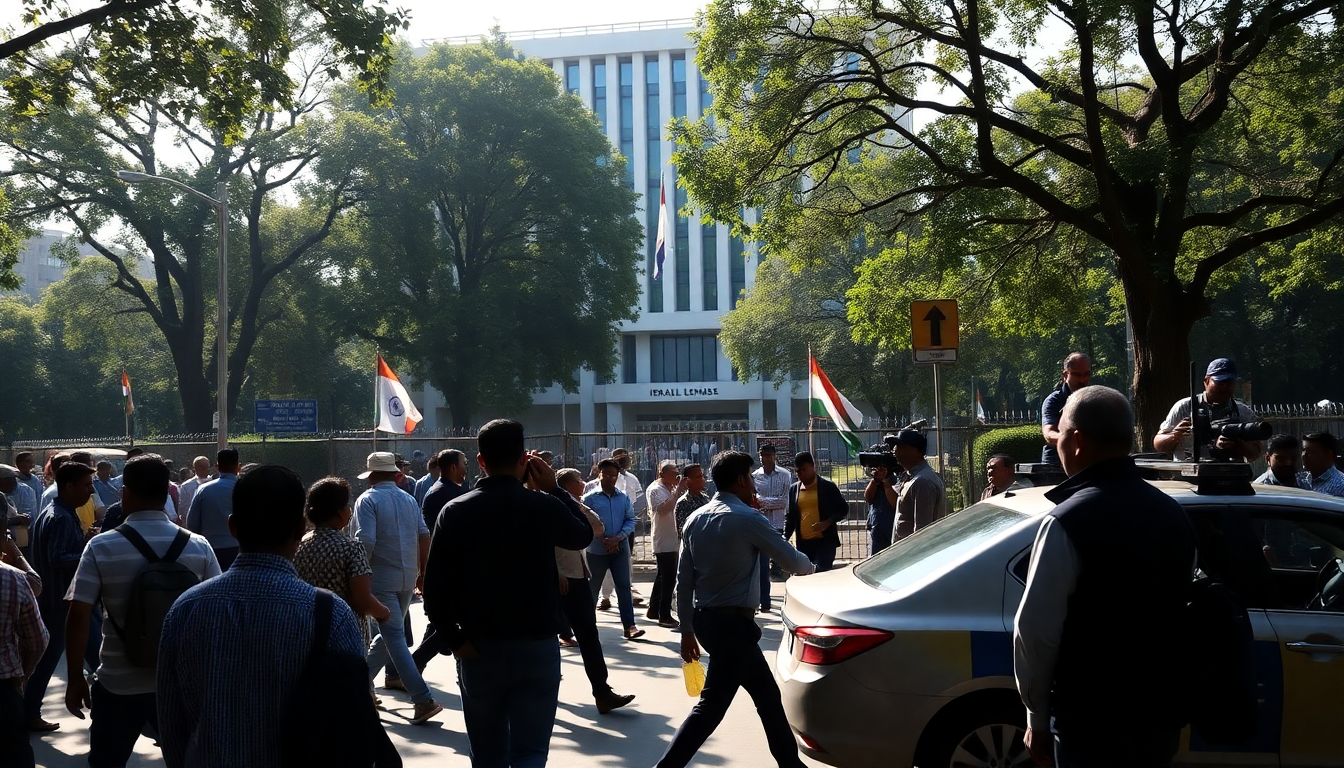Table of Contents
John Abraham, a well-known name in Bollywood, is stepping back into the world of geopolitical storytelling with his latest film, Tehran. After the success of politically charged thrillers like Madras Cafe and The Diplomat, this new project promises to pull viewers into a gripping narrative inspired by real-life events.
Directed by Arun Gopalan and produced by Maddock Films, Tehran is based on the 2012 bomb explosion near the Israeli Embassy in Delhi, weaving a complex tale that connects the lives of people from Israel, Iran, and India. Isn’t it fascinating how cinema can bridge such diverse cultures and histories?
The Personal Connection Behind Tehran
For Abraham, his role in Tehran goes beyond just acting; it’s a reflection of his own journey. He reprises his character from Batla House, stepping into the shoes of ACP Rajiv Kumar, a fictionalized version of the real-life Delhi police officer Sanjeev Kumar Yadav.
This narrative challenges loyalties and beautifully intertwines international relations. Abraham shares that his family history has significantly shaped his understanding of the film’s themes. With Iranian roots on his grandfather’s side, he feels a deep responsibility to portray Iran authentically on screen.
“The usual, predictable thing would have been to blame our neighbor,” Abraham points out, highlighting the need for nuanced storytelling. He’s committed to showing Iran in a positive light, countering the usual misconceptions. This dedication to authenticity influences not just his portrayal but also his immersion in the Farsi and Hebrew languages, drawing from personal experiences from his childhood.
How often do we see actors going the extra mile to connect with their roles?
Mastering the Languages and Crafting Authenticity
Abraham’s preparation for this role was nothing short of intense. He spent around six months honing his skills in Farsi, with the help of a dedicated teacher named Mohammed.
He also collaborated with Iranian actor Hadi Khanjanpour, who plays a significant role in the film. But that’s not all—Abraham even consulted with former Chelsea Football Club coach Avram Grant to master Hebrew. This kind of collaboration shows just how serious he is about crafting a performance that resonates with audiences while respecting the cultures involved. Isn’t it inspiring to see such dedication in the film industry?
His keen interest in geopolitics acts as a solid foundation for his cinematic ventures. Previous films like Madras Cafe and Parmanu reflect his commitment to telling researched narratives grounded in real-world issues. Abraham believes it’s crucial to understand historical contexts, like the Palestinian displacement and the roots of various geopolitical tensions, to create a narrative that not only informs but also engages viewers. Isn’t it refreshing when entertainment also educates?
Navigating Challenges in the Film Industry
Of course, Tehran’s journey to release faced its fair share of challenges. The ongoing tensions in the Middle East raised concerns about the film’s commercial success, leading to skepticism from studios and audiences alike. Abraham candidly addresses these hurdles, acknowledging the difficulties in attracting interest. Thankfully, a partnership with ZEE5 Global provided a platform to showcase the film, allowing it to reach a wider audience and ignite important discussions about its themes.
As he transitions from actor to producer, Abraham is eager to delve into more meaningful content. While his early career focused on roles that would sell, he now aims to balance commercial success with artistic integrity. Influenced by powerful films like Schindler’s List, Abraham is dedicated to creating narratives that resonate deeply, even if they come with risks. Isn’t it interesting how some of the most impactful stories often tread on uncertain ground?
Looking back at his career, Abraham recognizes that both failures and successes have shaped his path. Projects that faced skepticism or criticism have motivated him to pursue storytelling that challenges norms and elevates conversations. With exciting projects on the horizon, including a possible sequel to Force and a motorcycle racing film, he remains focused on blending content with commercial appeal, all while aiming to leave a lasting mark on the film industry. What kind of legacy do you think he will create?





